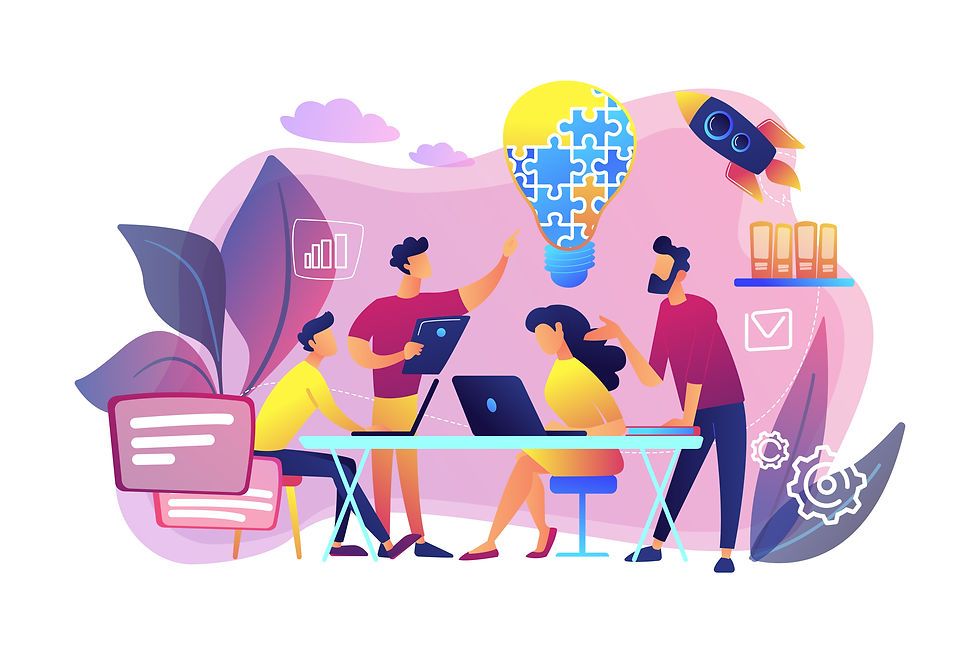Read.Watch.Listen. DEI in Engineering Education
- SE3 Committee
- Aug 2, 2023
- 4 min read
August 2023 Issue
A monthly forum to share diversity, equity, and inclusion resources.
Welcome to the next installment of Read.Watch.Listen. This month, we want to discuss the importance of DEI efforts in Engineering Education and how these efforts affect entry level engineers in our industry. In the immediate aftermath of the Supreme Court’s recent decision banning race-conscious admissions, our industry will need to increase efforts to realize diversity, equity, and inclusion in college admissions, education, and our industry.
The following resources highlight the importance of the engineering education environment and provide examples of ways to improve the preparation and success of our future engineers. We encourage you to also read the American Society for Engineering Education (ASEE) Response to these Supreme Court rulings and their Call to Action.
As ASEE states, we must “recognize that we cannot afford to filter out talent from the engineering workforce, weeding out students who lack pre-college opportunity and the preparation it provides. (ASEE) has developed evidence-based tools and programs to improve retention and effective learning, to develop cultures of inclusion and belonging, and to define smoother, more flexible degree pathways. We must double down on our commitment to implement these improvements broadly in engineering education.”

Image by Freepik
If you are interested in learning even more about this topic, we also recommend the SEAONC SE3 topic briefs that share the results of a recent survey on civil engineering student experience. The purpose of the survey was to better understand the current undergraduate civil engineering experience, including how students were introduced to engineering, challenges they face throughout their undergraduate careers, and their career aspirations, with an interest in learning why there are very few folks who identify as Black or African American in the structural engineering profession and what the pipeline looks like at the undergraduate level, in terms of racial and ethnic demographics. These reports are meant to be resources for leaders, educators, and anyone interested in engagement and retention of students in the structural engineering pathway, especially managers involved in hiring entry level staff. At the end of each topic brief, SEAONC SE3 has included discussion questions as a starting point to spark further conversation around the data and trends presented in the briefs.
If you are interested in learning more about promoting dialogue on engagement and equity in the structural engineering profession, we invite you to join us for the 2023 SE3 National Symposium, which will be held on Tuesday, November 7, 2023 in Anaheim, CA. During this half-day program, attendees will participate in five separate sessions focused on various aspects of engagement, retention, diversity and inclusion. They will learn about SE3 initiatives and activities, hear from industry panelists on the state of our profession, and acquire practical strategies and best practices for improving retention within their organizations.
Read.Watch.Listen is a monthly forum hosted by the NCSEA SE3 Committee to share and promote conversations on diversity, equity and inclusion within the structural engineering profession. Each month, we will curate a series of articles, audio-visual and digital media to facilitate self-education in matters that affect our professional practice as structural engineers. Whether you choose to read, watch, or listen (or all three!), we hope you will join us in this important conversation. Missed the previous issue? Check out the NCSEA SE3 Committee News and Publication page.
Share your thoughts and/or recommended resources for the next issue at ncsea@ncsea.com.
Stuck in 1955, Engineering Education Needs a Revolution - Issues in Science and Technology
This article serves to highlight the many outdated traditions of engineering education and how these must be addressed in order to prepare and retain future engineers. In a world that is much more digitized, diverse, global, and rapidly-evolving, it is crucial to teach engineering students to be true problem-solvers, put an end to the “pipeline mindset” that implies there are only a few difficult ways to become an engineer, re-evaluate what the life of a faculty member looks like now, and find ways to make higher education more accessible.
DEI in Engineering Education - ASEE TV
ASEE TV speaks with Tershia A. Pinder-Grover at the 2023 ASEE Conference. She explains the importance of DEI in engineering and engineering education, discusses how individuals can help effect change, and provides ways to develop welcoming teams.
What does social justice have to do with engineering? with Dr. Donna Riley - Engineering Change Podcast
In this episode, Dr. Yvette E. Pearson speaks with Dr. Donna Riley. At the time of the recording, Dr. Riley was the Head of the School of Engineering Education at Purdue University; she recently became the Dean of the School of Engineering at University of New Mexico. Drs. Pearson and Riley discuss research approaches for solving societal problems, connections between climate justice and social justice, and how societal inequities translate to inequities in engineering education (and vice versa). For more information on climate justice, consider reading our July issue!
This article was originally published in the August 2023 issue of NCSEA's Structural Connection newsletter. For more information, check out NCSEA's DEI Resources.








Comments